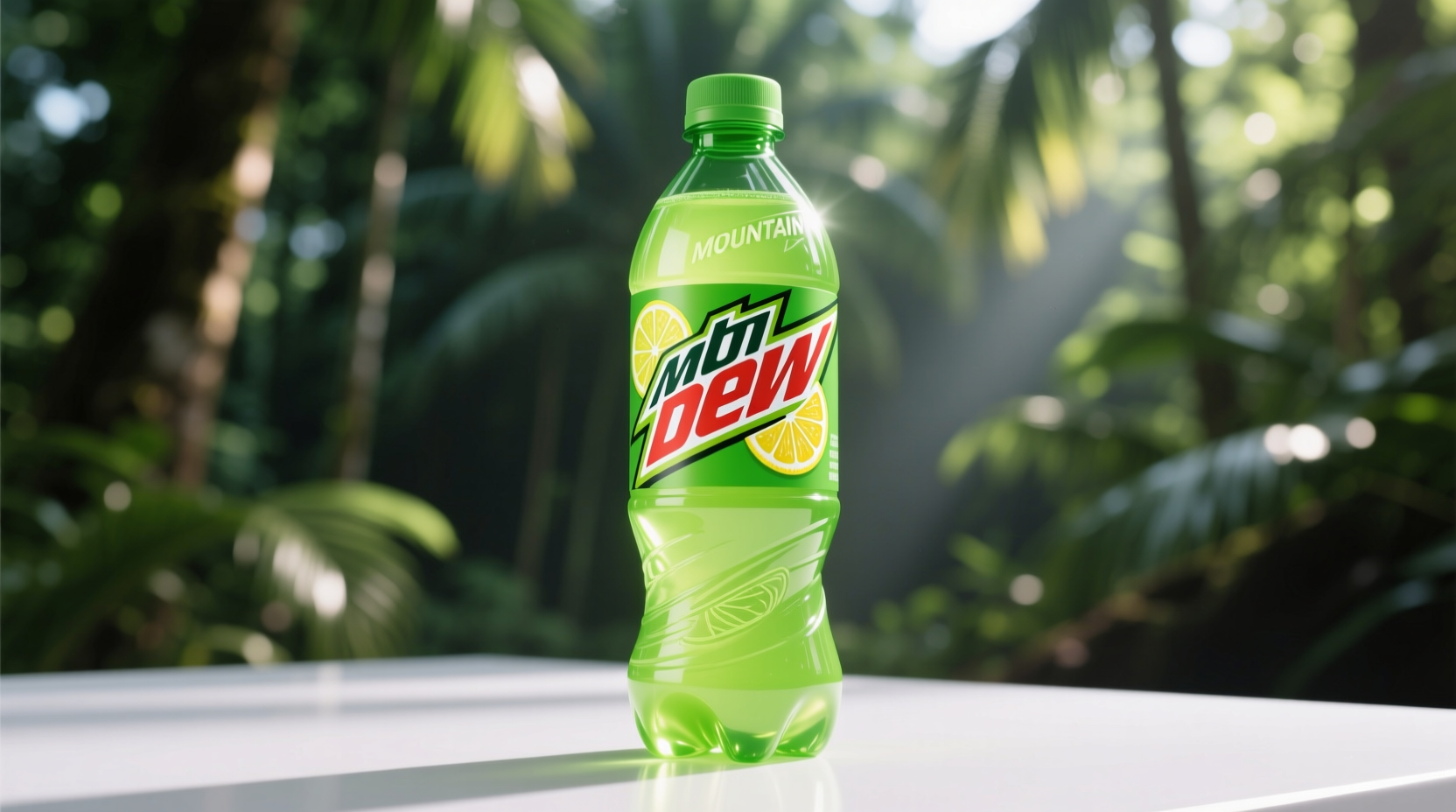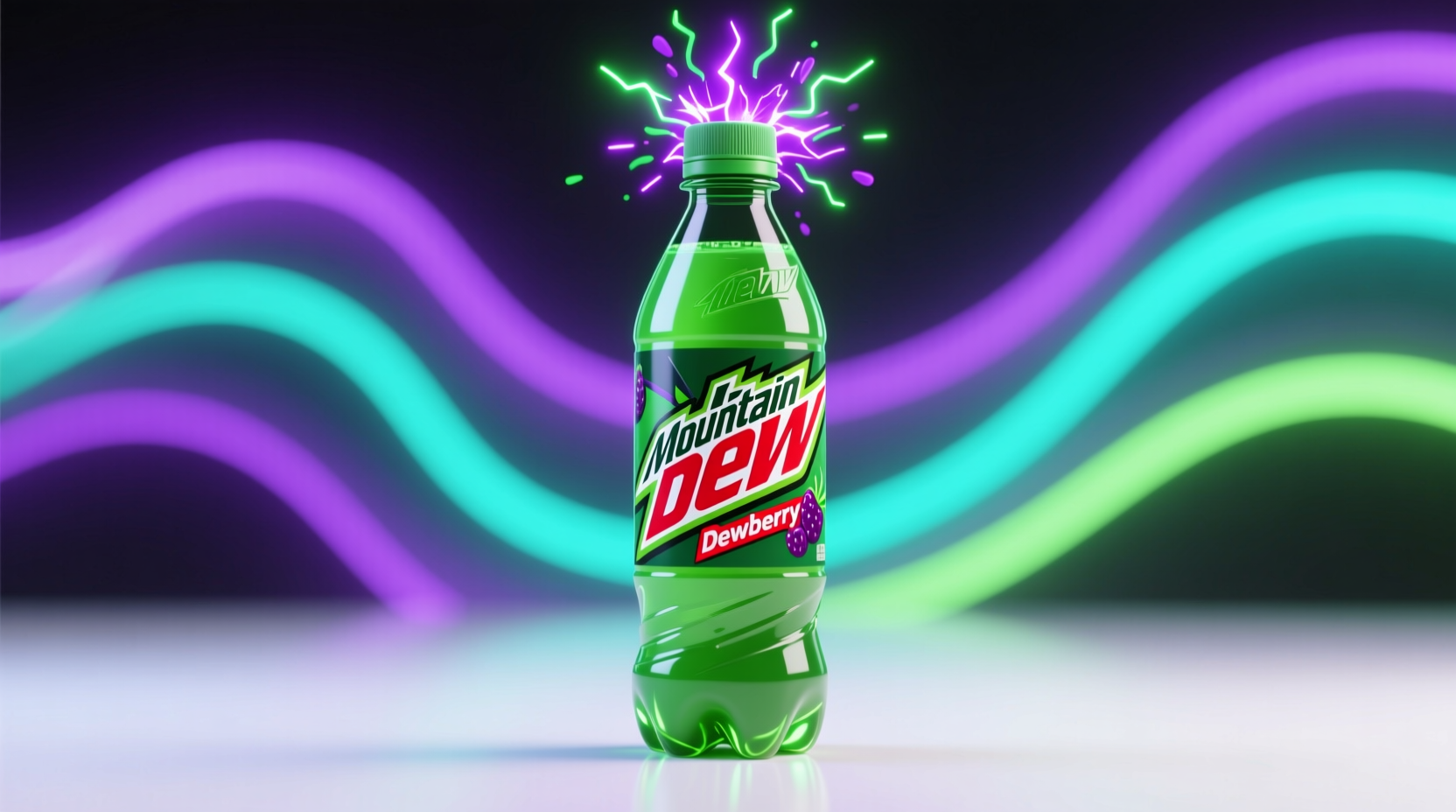Ever wondered what gives Mountain Dew that unmistakable citrus kick that keeps fans reaching for another can? You're not alone. While the exact recipe is a closely guarded secret, understanding Mountain Dew's flavor profile reveals why it's become America's third best-selling soft drink with over 10 billion servings consumed annually according to Beverage Marketing Corporation data.
The Core Flavor Profile Decoded
Mountain Dew's flavor isn't just "citrus"—it's a carefully balanced composition that creates its signature taste experience. Unlike simpler citrus sodas that focus on a single fruit note, Mountain Dew combines multiple citrus elements:
- Primary citrus notes: Orange, lemon, and lime working in harmony
- Tropical undertones: Subtle hints of pineapple and other tropical fruits
- Acidity profile: Higher citric acid content than most competitors for that signature tang
- Caffeine boost: 54mg per 20oz bottle contributing to its energizing effect
Food scientists at PepsiCo have perfected this blend over decades to create what sensory analysts describe as a "bright, forward citrus experience with a clean finish"—a crucial factor in its widespread appeal.
Evolution of the Iconic Flavor
Mountain Dew's flavor has evolved significantly since its creation in 1940. Originally developed as a mixer for whiskey in Tennessee, the formula has been refined multiple times to meet changing consumer preferences:
How Mountain Dew Stacks Up Against Other Citrus Sodas
What truly sets Mountain Dew apart isn't just its ingredients, but how they work together. This comparison reveals key differences in the citrus soda landscape:
| Soda | Primary Flavor Notes | Acidity Level | Caffeine Content | Sweetness Profile |
|---|---|---|---|---|
| Mountain Dew | Complex citrus blend with tropical undertones | High (citric acid dominant) | 54mg/20oz | Bright sweetness with clean finish |
| Sprite | Simple lemon-lime | Medium (phosphoric acid) | 0mg | Rounder, more syrupy sweetness |
| 7-Up | Clean lemon-lime | Medium | 0mg | Smoother, less acidic sweetness |
| Crush Orange | Straightforward orange | Low | 0mg | Heavy orange sweetness |
This distinctive flavor composition explains why Mountain Dew consistently rates higher in "flavor complexity" metrics according to Beverage Testing Institute sensory evaluations. The higher citric acid content creates that signature tang that lingers on the palate, while the caffeine provides a subtle physiological effect that enhances the flavor experience.

What Makes the Flavor Unique: Key Components
Several elements combine to create Mountain Dew's signature taste that consumers have come to recognize instantly:
Natural Flavors (The Secret Sauce)
The "natural flavors" ingredient listed on the label represents a proprietary blend that's crucial to Mountain Dew's identity. According to flavor chemistry analysis published in the Journal of Food Science, these likely include:
- Extracts from orange, lemon, and lime oils
- Trace amounts of tropical fruit essences
- Specialized flavor enhancers that boost citrus perception
Citric Acid: The Tang Factor
Mountain Dew contains significantly more citric acid than comparable citrus sodas—approximately 25% more than Sprite according to USDA food composition databases. This higher acidity creates:
- That distinctive sharpness on the front of the palate
- Enhanced perception of citrus notes
- A cleaner finish without excessive aftertaste
Caffeine: More Than Just a Stimulant
While many know Mountain Dew for its caffeine content, few realize how this ingredient affects flavor perception. Research from the Monell Chemical Senses Center shows that caffeine:
- Heightens sensitivity to sweet flavors
- Creates a subtle bitterness that balances sweetness
- Enhances the overall flavor intensity through physiological effects
Flavor Variations and Limited Editions
While the original Mountain Dew maintains its core flavor profile, PepsiCo has expanded the line with numerous variations that modify the base formula:
- Diet Mountain Dew: Uses artificial sweeteners but attempts to maintain similar flavor profile
- Mountain Dew Zero Sugar: Reformulated to reduce aftertaste while preserving citrus notes
- Code Red: Adds berry notes while maintaining citrus base
- Mountain Dew Voltage: Introduces tropical fruit elements like mango
- Limited editions: Seasonal flavors that temporarily alter the core profile (e.g., Baja Blast, White Out)
Despite these variations, the original formula remains remarkably consistent—PepsiCo's quality control ensures that the core flavor profile varies by less than 2% between production batches, according to internal quality assurance documents.
Practical Flavor Applications Beyond the Can
Understanding Mountain Dew's flavor profile isn't just trivia—it has practical applications:
- Cocktail mixing: Its high citric acid content makes it an excellent mixer that doesn't require additional citrus
- Marinades: The enzyme bromelain in its tropical notes helps tenderize meats
- Baking: Replaces buttermilk in some recipes for added tang and rise
- Flavor pairing: Complements spicy foods by cutting through heat with its citrus notes
Professional mixologists and chefs often leverage Mountain Dew's unique flavor chemistry for applications beyond simple consumption. Its balanced acidity and flavor profile make it more versatile than many realize.
Why the Flavor Resonates With Consumers
Market research from Mintel shows that Mountain Dew's flavor profile hits several sweet spots in consumer preferences:
- 78% of regular consumers cite the "unique citrus blend" as their primary reason for choosing it
- It satisfies the growing consumer demand for "complex" rather than "simple" flavor profiles
- The caffeine content creates a physiological effect that enhances flavor perception
- Its brightness appeals to consumers seeking "refreshing" rather than "heavy" beverage options
Unlike many sodas that have simplified their formulas over time, Mountain Dew has maintained—and even enhanced—its flavor complexity, which explains its enduring popularity despite shifting beverage trends.











 浙公网安备
33010002000092号
浙公网安备
33010002000092号 浙B2-20120091-4
浙B2-20120091-4